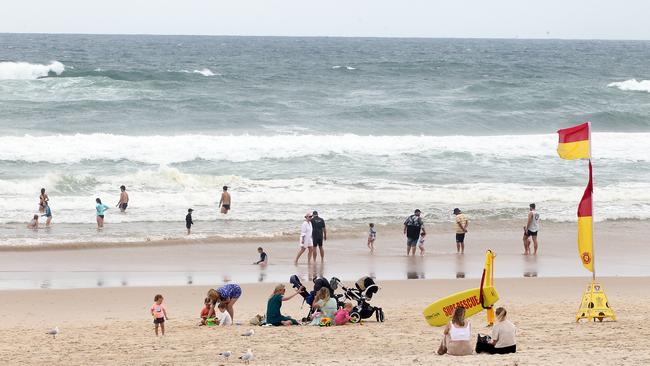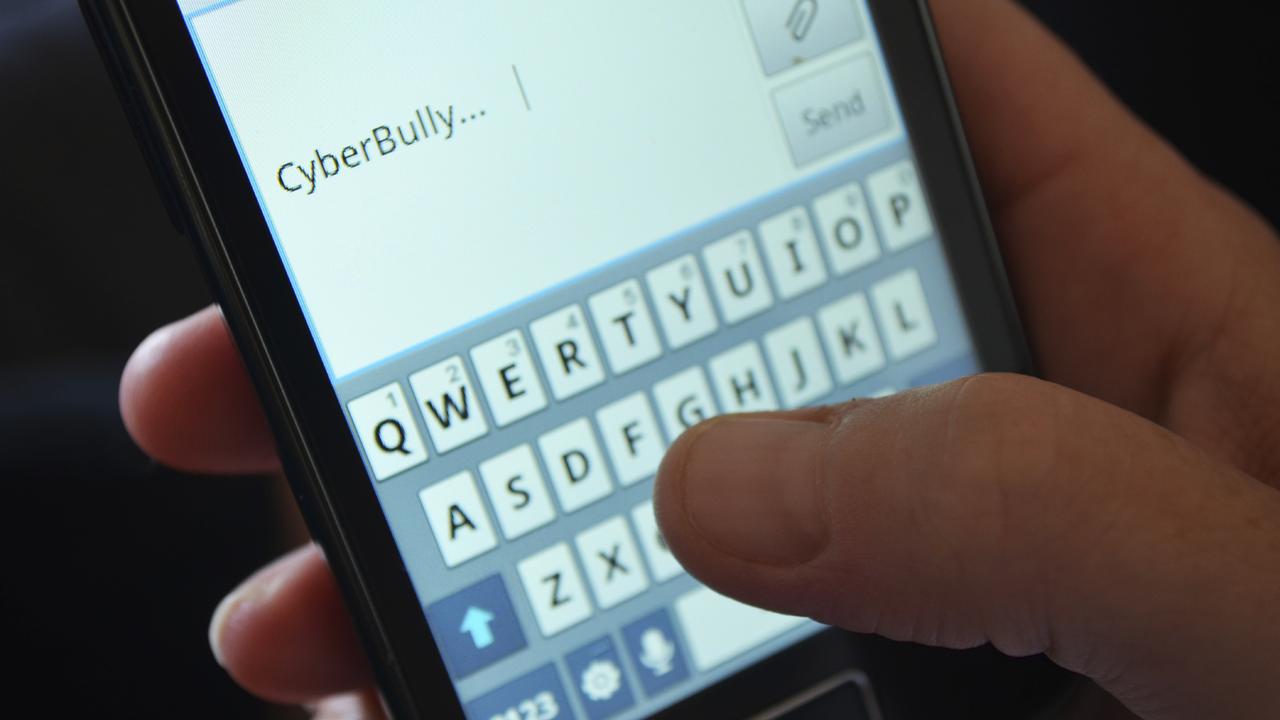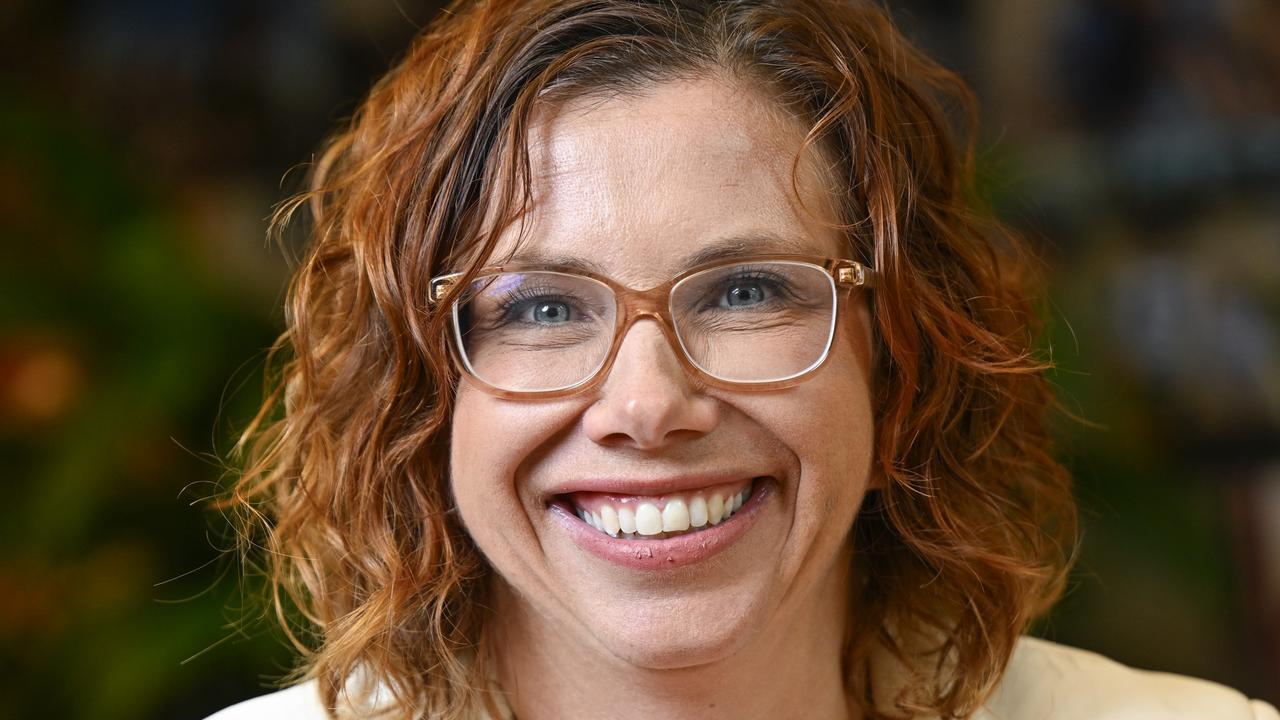Trapped: family sent into hotel quarantine
A Melbourne family has been detained in hotel quarantine after flying back from the Gold Coast, despite having been hundreds of kilometres from any known COVID cases.

A Melbourne family has been detained in hotel quarantine after flying back from the Gold Coast, despite having been hundreds of kilometres from any known coronavirus cases when they drove through regional NSW days before Victoria closed the border with its northern neighbour.
Ellise and Justin McLoughlan said on Sunday they would be more than happy to quarantine at their home in Yarraville, in Melbourne’s inner west, with their two children aged five and seven, but they have not been given that option since they were taken to the Four Points by Sheraton hotel in Docklands on Wednesday.
They also don’t understand why they have been detained when the Andrews government is allowing home quarantine for hundreds of people who directly contravened Queensland and Victorian health directives not to travel when they flew back from Brisbane on Friday and Saturday.
When the McLoughlans set out for Queensland’s Gold Coast on December 27, they deliberately altered their route and booked an extra night’s accommodation to avoid going anywhere near Sydney and the central coast, which were then the only NSW COVID hotspots, listed as “red zones” by the Victorian government.
They took a less direct inland route, breaking the drive with overnight stays in Albury, Mudgee and Armidale and arriving in Queensland on December 30.
It was not until December 31, ahead of Victoria’s hard border closure with NSW on January 1, that the whole of NSW was declared a “red zone”.
On their return to Victoria, the McLoughlans had their car transported and flew home so as to avoid entering NSW following the border closure.
“It was certainly a rude shock to us when we touched down in Melbourne and found ourselves detained in hotel quarantine after obsessively checking the (Department of Health and Human Services) website for border permit information multiple times a day on our holiday,” Ms McLoughlan said.
“Had we known that was a likely outcome, we would not have flown home. “We’ve lived through Melbourne’s lockdown and we’re really supportive of the public health measures, and we went to a lot of effort to comply.”
Mr McLoughlan added: “The information on the website was completely inadequate and still is in terms of making it clear that regardless of where you’re travelling from, if you’ve been in any part of NSW at any time in the last 14 days, you’ll go into hotel quarantine.
‘‘They make out like that is a clear cut-rule after you’ve been detained at the airport.
“Why not put that simple language on the website?”
Ms McLoughlan said she and her husband had since made calls to multiple hotlines and personnel within DHHS, and had usually been met with “surprise that we are even in hotel quarantine”.
But as of Sunday, nobody had taken responsibility for checking whether they really did need to be there, let alone releasing them.
They were unable to apply for an exemption until after they received negative results from COVID tests, which DHHS refused to conduct until day three of their quarantine, and have heard nothing since they submitted their application on Saturday.
Following the release of dozens of NSW return travellers from hotel quarantine on Thursday, Friday and Saturday, a Victorian government spokeswoman said on Saturday night that hotel quarantine would “only be used as a last resort for Victorians if they did not have an appropriate place to isolate”, with hundreds of recent arrivals from Brisbane permitted to quarantine at home.
“This was extremely upsetting to read in our current situation and completely false,” Ms McLoughlan said, describing hotel quarantine for a family that had visited what was a “green zone” in NSW prior to the border closure as “disproportionate”.
“It’s difficult to explain to our young children why they have been served with a detention notice, and why we cannot go home, particularly after the efforts we made to remain compliant.”
A DHHS spokesman said every exemption was being assessed on a “case by case basis” and processed “as quickly as possible”



